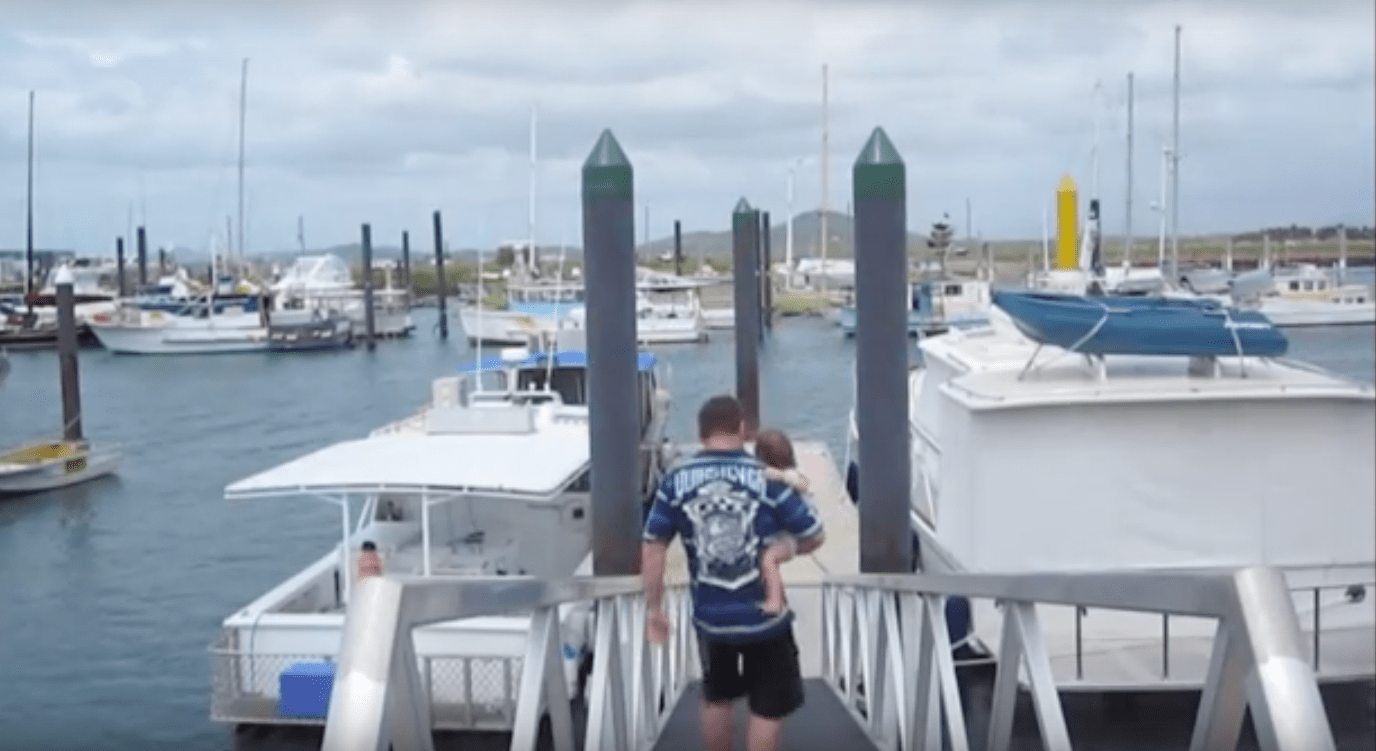Video broadcast on March 1, 2011 on ABC national television News 24 and audio on ABC Radio National.
Cyclone Yasi hasn’t just wrought havoc on land in northern Queensland.
The destructive winds of the category five system have destroyed coral and marine life in the Great Barrier Reef and disturbed fish stocks.
The Great Barrier Reef Marine Park Authority is assessing the state of the reef but reef line fishermen along the Queensland coast are already feeling the impact. They say the fish have vanished.
Nicky Redl reports from the Queensland town of Bowen.
TRANSCRIPT:
NICKY REDL: The Bowen Marina between Mackay and Townsville is full of fishing boats. Nobody is heading to sea. The only work to be done is maintenance.
Reef line fishermen catch fish like coral trout by hand, and sell them alive to local and overseas markets. But since the cyclone, their usual catch is nowhere to be found.
On his last trip, Wayne Teakel didn’t even catch enough to cover fuel costs.
WAYNE TEAKEL: Our boat was one of the first boats to head out after the cyclone, and we’ve done two-and-a-half days for one coral trout, and 20 red throat emperor and three stripies, which, we used 700 liters of diesel, outboard fuel, ice, bait, so you can tell we are definitely going backwards fast.
NICKY REDL: Further south has been less affected, but not everyone can travel the distance.
JAMIE LAIRD: This boat is too small to relocate. We haven’t got the fuel capacity to run out of Mackay some of the bigger boats. And the majority of the reef is damaged basically from Cairns to Mackay, so we can’t really go anywhere.
All my savings, life savings went into this boat so I could become a fisherman, and basically the cyclone has taken it all away from us.
NICKY REDL: The state government has acknowledged fishermen have been affected, but says they don’t qualify for extra assistance. That means that fishermen like Jamie Laird can’t apply for loans or grants like banana or cane growers hit by cyclone Yasi, because fishermen aren’t classified as primary producers.
He says the wage subsidies they get from Centrelink are not enough to live on.
JAMIE LAIRD: You know we are husband and wife with three children, they have offered us 400 dollars a fortnight to survive on. Like that, that wouldn’t pay your grocery bill.
I was the main money earner, my wife was at home looking after the kids. Now it’s had to change around, she’s had to go back to work and I’m actually daddy daycare at the moment.
There is just no money coming in at all for anyone.
NICKY REDL: Seafood wholesaler Brett Bauer already had to close his business, because there is nothing to sell.
BRETT BOWER: We only sell local product, we don’t sell any imported stuff or anything, so with no catches with the boats, we’ve had nothing to do, I’ve had to lay off just about all my staff bar two people.
NICKY REDL: Some are lucky enough to have boats big enough to relocate further south, but that means a huge hike in fuel costs.
Boat owner Tanya Giles.
TANYA GILES: You now, we’ve got further distances to get to the reef as well as the fact that we had to get down there in the first place.
You know, we’re lucky enough to have been quite welcomed by the Mackay community and the Mackay harbor, but it just means that the traveling distances for us compared to what we are used to are phenomenal. So our fuel bill has doubled.
NICKY REDL: And with all the extra boats heading south, the industry is worried that it’s only a matter of time until that area is overfished, while those who can’t relocate are left to wonder why they are being treated differently than other producers. Nicky Redl, ABC Rural, Bowen.
Backstory: I was working as an ABC Rural Reporter in Queensland when cyclone Yasi hit, and we only had audio recorders, not video cameras. I used my small automatic canon camera with video function on a tripod for the footage, and recorded the audio separately on a Marantz recorder, later syncing audio and video in Premier. I hadn’t been trained in Premier either, so it became a long night in the Mackay studio. It was worth it though, as the footage and audio were ultimately broadcast on state-wide and national radio and TV and the plight of fishermen in the region thereby received more widespread attention. The government subsequently offered fishermen the financial assistance it had previously denied them on the grounds that they were not primary producers.
